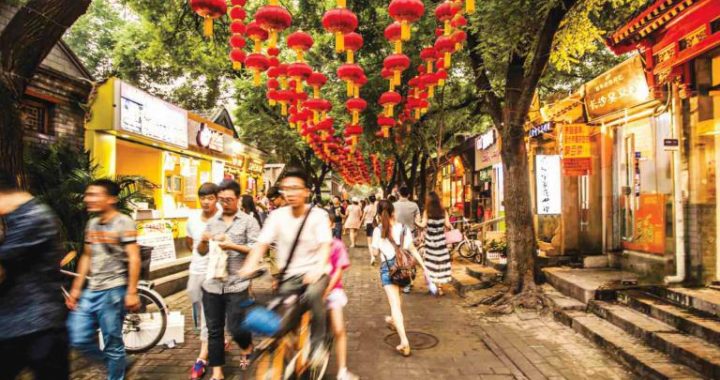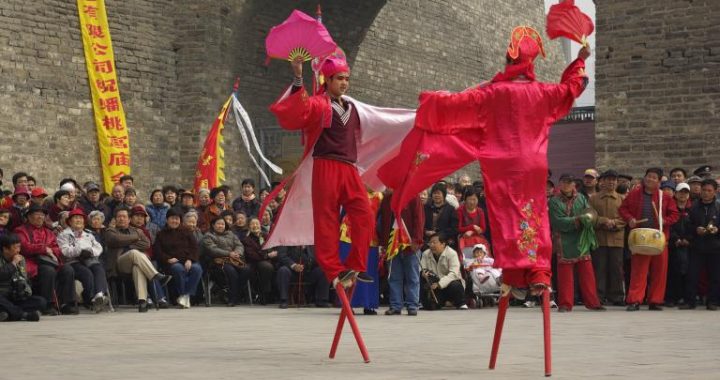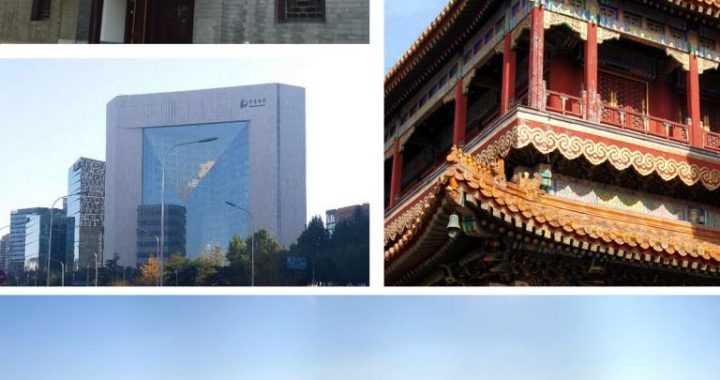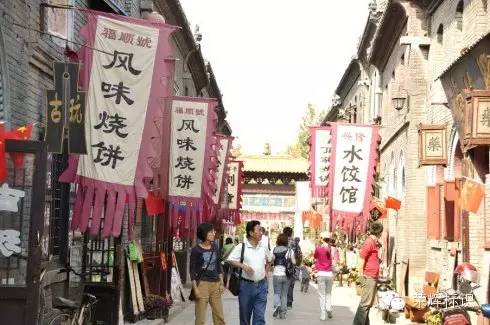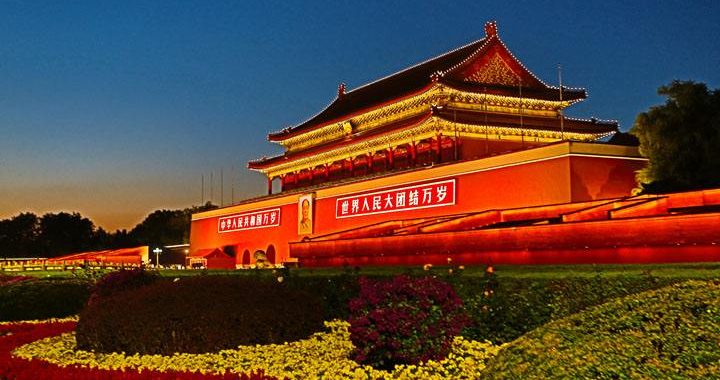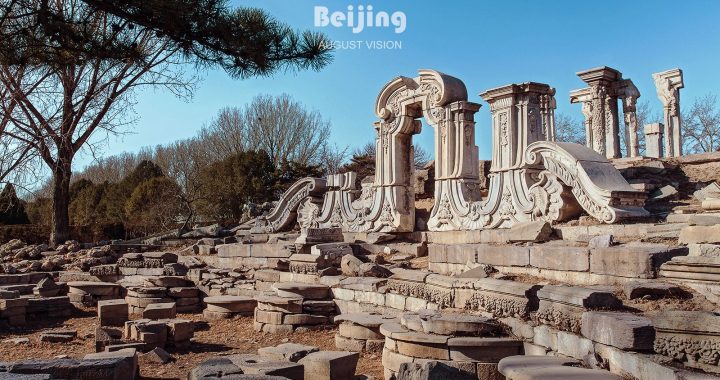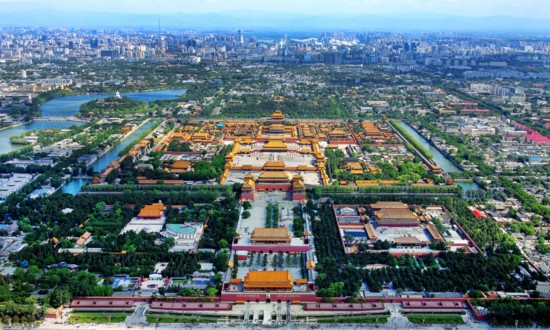Official Mascots-Fuwas’—’ Story
3 min readHere is an interesting story for you to read that describes the olympic mascots.
The official mascots of the Beijing 2008 0lympic Games, combining five Fuwas’names together express Each Fuwa has a rhyming two-syllable name-a traditional way of expressing affection for children in China. Beibei(贝贝 is the Fish, Jingjing is the Panda,Huanhuan is the Olympic Flame, Yingying is the Tibetan Antelope and Nini is the Swallow. In their origins and their headpieces you can see the five elements of nature-the sea, forest, fire, earth and sky-all stylistically rendered in ways that represent the deep traditional influences of Chinese folk art and ornamentation. Each Fuwa symbolizes a different blessing and will honor this tradition by carrying the blessings to the children of the world. Prosperity, happiness, passion, health and good luck were spread to every continent as the Fuwas carried their invitation to Beijing 2008 to every part of the globe.
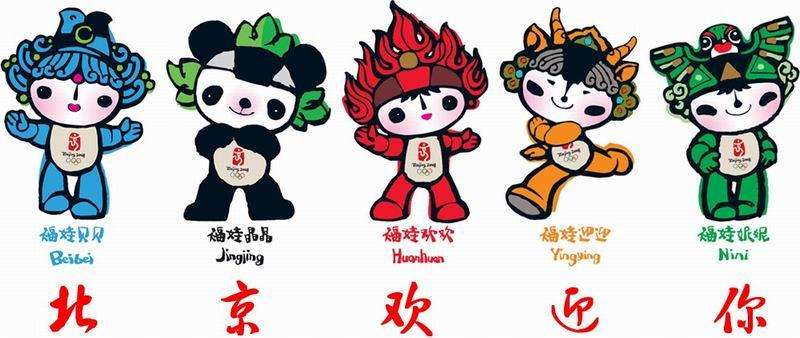
In China’s traditional culture and art, the fish and water designs are symbols of prosperity and the harvest. So Beibei carries the blessing of prosperity. A fish is also a symbol of surplus in Chinese culture, another measure of good year and good life.he ornamental lines of the water-wave designs are taken from well-known Chinese paintings of the past. Among the Fuwas, Beibei is known to be gentle and pure. Strong in water sports,she reflects the blue olympic ring.
Jingjing makes children smile. You can see his joy in the charming naivety of his dancing pose and the lovely wave of his black and white fur. As a national treasure and a rotected species, pandas are adored by people everywhere. The lotus designs in Jingjing’s head-dress, which are inspired by the porcelain paintings of the Song Dynasty (AD 960-1234), symbolize the lush forest and the harmonious relationship between man and nature.
Jingjing was chosen to represent our desire to protect nature’ s gifts, and to preserve the beauty of nature for all generations Jingjing is charmingly naive and optimistic. He is an athlete noted for strength, who represents the black Olympic ring.
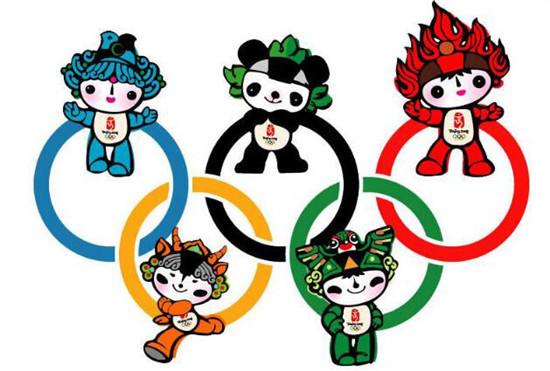
Huanhuan is a child of fire, symbolizing the 0lympic flame and the passion of sport-and passion is the blessing he bestows. Huanhuan stands in the centre of the Fuwas as the core embodiment of the Olympic spirit And while he inspires all with the passion to run faster, jump higher and be stronger, he is also open and inviting. Wherever the light of Huanhuan shines, the inviting warmth of Beijing 2008, and the wishful blessings of the
Chinese people, can be felt. The fiery designs of his head ornament are drawn from the famed Dunhuang murals, with just a touch of China’s traditional lucky designs. Huanhuan is outgoing and enthusiastic. He excels at all the ball games and represents the red 0lympic ring.
Yingying is fast and agile and can swiftly cover great stretches of land as he races across the earth. A symbol of the vastness of China’ landscape, the antelope carries the blessing of health, the strength of body that comes from harmony with nature. Yingying’s running pose captures the essence of a species unique to the Qinghai-Tibet Plateau, one of the first animals put under protection in China. The selection of the Tibetan Antelope reflects Beijing’s commitment to green O1ympics. His head ornament incorporates several decorative styles from the Qinghai-Tibet and Xinjiang cultures and the ethnic design traditions of western China. Strong in track and field events, Yingying is a quick-witted and agile boy who represents the yellow olympic ring.
